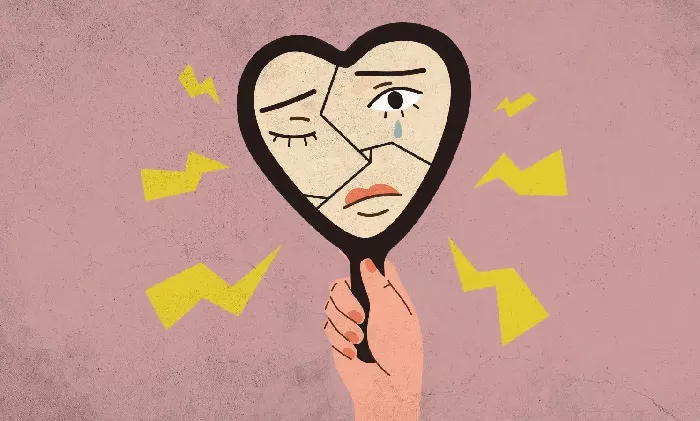Low self-esteem is a common issue that affects many people. It can influence how we see ourselves, interact with others, and handle challenges. But is low self-esteem considered a mental illness? This article explores the differences between low self-esteem and mental disorders, their causes, effects, and ways to improve self-worth.
What Is Self-Esteem
Self-esteem refers to how we value and perceive ourselves. People with healthy self-esteem generally feel confident and worthy. Those with low self-esteem often doubt themselves and feel inadequate.
Self-esteem develops over time. Childhood experiences, social interactions, and personal achievements all play a role. While everyone has moments of self-doubt, persistent low self-esteem can harm mental health.
Is Low Self-Esteem a Mental Illness
Low self-esteem is not classified as a mental illness on its own. However, it is often linked to mental health conditions such as:
Depression: People with low self-esteem may feel hopeless or worthless.
Anxiety disorders: Fear of judgment can stem from poor self-image.
Eating disorders: Negative body image is common in conditions like anorexia or bulimia.
Personality disorders: Conditions like borderline personality disorder often involve unstable self-worth.
Since low self-esteem contributes to these disorders, it is considered a risk factor rather than a standalone illness.
Causes of Low Self-Esteem
Many factors can lead to low self-esteem, including:
Childhood Experiences
Negative childhood experiences, such as bullying, neglect, or excessive criticism, can shape self-worth. Children who grow up feeling unloved may struggle with confidence as adults.
Social and Cultural Influences
Media, societal beauty standards, and social comparisons can make people feel inadequate. Social media often worsens this by promoting unrealistic lifestyles.
Trauma or Abuse
Past trauma, such as emotional, physical, or sexual abuse, can deeply damage self-esteem. Survivors may blame themselves or feel unworthy of love.
Failure or Rejection
Repeated failures or rejections (in relationships, careers, or academics) can make people doubt their abilities.
Mental Health Conditions
As mentioned earlier, depression and anxiety can lower self-esteem. At the same time, low self-esteem can worsen these conditions, creating a vicious cycle.
Signs of Low Self-Esteem
People with low self-esteem often display these behaviors:
Negative self-talk: Frequently criticizing themselves (e.g., “I’m not good enough”).
Fear of failure: Avoiding challenges due to fear of making mistakes.
People-pleasing: Seeking constant approval from others.
Social withdrawal: Isolating themselves due to fear of judgment.
Perfectionism: Setting unrealistically high standards and feeling like a failure when they’re not met.
How Low Self-Esteem Affects Mental Health
While not a mental illness itself, low self-esteem can lead to serious problems:
Increased Risk of Depression
People who see themselves negatively are more likely to develop depression. They may feel hopeless and lose interest in activities they once enjoyed.
Anxiety and Stress
Low self-esteem can cause excessive worry about others’ opinions. This can lead to social anxiety, panic attacks, and chronic stress.
Unhealthy Relationships
Those with low self-worth may stay in toxic relationships, fearing they don’t deserve better. They might also struggle with trust and intimacy.
Self-Sabotage
Some people unconsciously undermine their success because they don’t believe they deserve happiness. This can affect careers, education, and personal growth.
Substance Abuse
To cope with negative feelings, some turn to alcohol or drugs. This can lead to addiction and further damage self-esteem.
Can Low Self-Esteem Be Treated
Since low self-esteem is not a mental illness, it doesn’t have a medical diagnosis. However, therapy and self-help strategies can improve self-worth.
Cognitive Behavioral Therapy (CBT)
CBT helps people identify and change negative thought patterns. A therapist can teach coping skills to build confidence.
Positive Affirmations
Repeating positive statements (e.g., “I am capable”) can rewire negative thinking over time.
Setting Realistic Goals
Achieving small, manageable goals can boost self-confidence. Progress should be celebrated, no matter how small.
Surrounding Yourself with Supportive People
Healthy relationships encourage positive self-image. Cutting ties with toxic individuals can improve mental well-being.
Practicing Self-Compassion
Being kind to oneself, especially after mistakes, helps build resilience. Self-compassion reduces self-criticism.
Professional Help
If low self-esteem leads to depression or anxiety, therapy or medication may be necessary. A mental health professional can provide personalized treatment.
When to Seek Help
If low self-esteem causes:
- Persistent sadness
- Suicidal thoughts
- Extreme social isolation
- Inability to function daily
it’s important to seek professional support. Therapists can help address underlying issues and improve quality of life.
Conclusion
Low self-esteem is not a mental illness, but it can contribute to mental health disorders. Understanding its causes and effects is the first step toward improvement. With therapy, self-care, and support, anyone can build healthier self-worth.
If you or someone you know struggles with self-esteem, reaching out for help is a sign of strength, not weakness. Everyone deserves to feel valued and confident.
Related topics:
- How To Overcome Anxiety And Build Self-Esteem: Effective Therapies Explained
- Why Is My Mental Health Getting Worse?
- 10 Ways To Prevent Mental Illness


